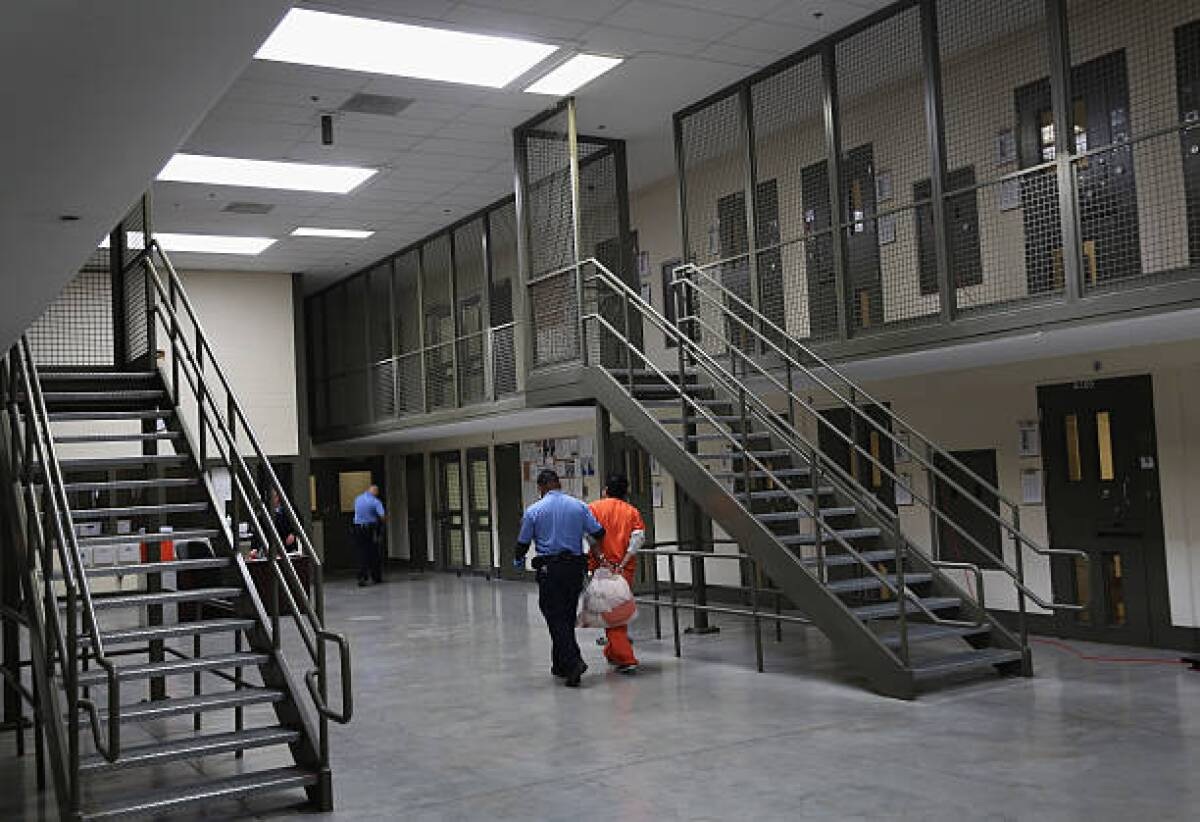Plans to convert a former prison in a remote California desert town into the state’s largest immigration detention center have sparked fierce backlash from community members and advocacy groups, raising concerns over long-term social and economic consequences.
U.S. Immigration and Customs Enforcement (ICE) on Thursday, June 26, partnered with CoreCivic, a private prison operator, to repurpose a decommissioned 2,500-bed facility in California City.
The facility, originally constructed by CoreCivic in 1999 as a federal prison, most recently operated as a state prison before closing in March 2024.
Under a six-month contract reportedly worth $10 million, ICE and CoreCivic plan to reopen the site to accommodate a significant expansion in immigration detention.
The move aligns with recent federal efforts under the Trump administration to ramp up immigration enforcement and increase detention capacity across the country.
CoreCivic has already begun recruitment efforts for the site, posting job listings for various roles including healthcare providers, maintenance personnel, and correctional staff.
However, the proposal has triggered a wave of criticism from local residents and national advocacy organizations.
They warn that the facility will deepen social injustices and inflict lasting harm on immigrant communities.
During a recent city council meeting in California City, a small desert community of roughly 14,000 residents, people voiced strong opposition to the project.
This was despite it not being officially on the meeting agenda. Some attendees traveled more than 100 miles from Los Angeles to participate.
“We urge you not to mistake short-term job offers for long-term economic health,” said Camila Chávez, executive director of the Dolores Huerta Foundation, in a letter submitted to the council.
“California City deserves real investment, in housing, healthcare, education, and job training, not a facility that profits only when people are detained and separated from their families.”
Chávez and other critics argue that expanding immigration detention capacity will increase deportation raids.
According to them, it will also increase family separations, disproportionately affecting vulnerable communities.
“ICE detention centers don’t exist in isolation. Every bed built becomes justification for more raids, more deportations, and more broken families,” she added.
Despite the intense criticism, not all local voices are against the project.
John Fischer, a longtime California City resident and retired police officer, defended the proposal by highlighting the economic benefits the facility had previously provided.
“The facility started off as an ICE prison and it was very good for this town,” Fischer told local news outlet KERO 23ABC.
“It brought jobs and attracted other businesses.
“Why do people support criminal illegal aliens and allow them to remain here, costing us precious tax dollars?”
The clash highlights deep divisions within the community, which struggles with high unemployment and limited economic development.
For some, the promise of jobs and economic activity is persuasive.
For others, the moral and humanitarian implications of expanding immigrant detention outweigh potential economic gains.
California City Mayor Marquette Hawkins acknowledged the complexity of the issue.
Marquette also emphasized the city’s intention to ensure fairness and transparency in any potential agreement.
“From an economic standpoint, I’m told that it does have some benefits,” Hawkins said in an interview with The Bakersfield Californian.
“However, we understand that 40% of our residents are Latino.
“We want to make sure there is fairness.
“We talked about oversight, and my office having the ability to do that.”
Hawkins encouraged residents to continue engaging with city leadership through public forums and city council meetings to express their views.
While the project has not yet received formal approval from local authorities, community input could shape the outcome.
As the debate continues, California City finds itself at the center of a national conversation about immigration and incarceration.
It is also at the centre of a national conversation on the role of private companies in shaping public policy.
The outcome could set a precedent not only for the region but for other communities grappling with similar decisions across the United States.



